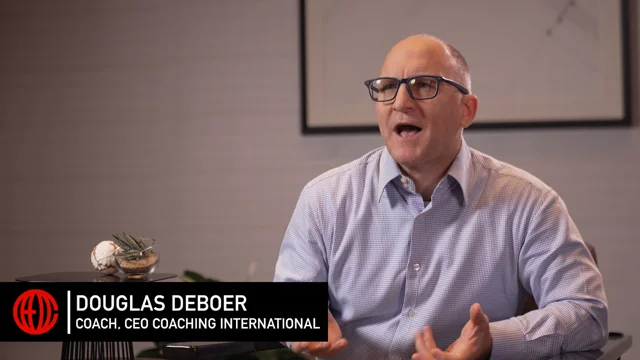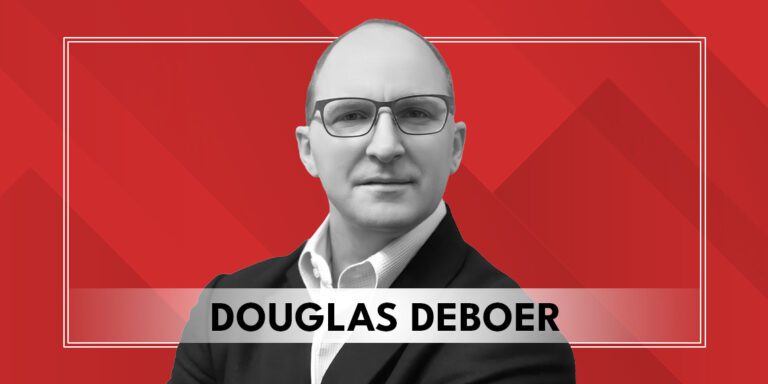"Culture is everything, especially in a turnaround. When a company has a deeply embedded culture—particularly a founder-led one—it can be resistant to change."
In a rapidly evolving global business landscape, few leaders have successfully navigated the complexities of diverse industries and cultures as effectively as Douglas DeBoer. With over two decades of experience in executive roles across continents, Douglas has led transformative initiatives in sectors ranging from education to food and technology. His ability to drive growth and foster innovation while maintaining a keen focus on company culture has positioned him as a sought-after CEO and advisor. In this interview, Douglas shares insights from his journey, his approach to digital transformation, and his strategies for leading teams in both founder-led and private equity-backed companies.
WOULD YOU LIKE TO GET FEATURED?
All interviews are 100% FREE OF CHARGE
Table of Contents
Douglas, thank you for joining us today. Your career spans multiple industries and continents. Please share how your journey as a CEO began and what shaped your leadership approach.
Douglas DeBoer: Thank you for having me. My journey as a CEO really began through various leadership roles that I held in multiple countries, most notably in China, Asia, and the U.S. I’ve been fortunate to lead companies across a diverse range of sectors including consumer technology, education services, restaurants, and multi-unit franchise businesses. My first major breakthrough came with Domino’s Pizza China, where we grew revenues from $8 million to $50 million in three years and significantly increased the company’s value at exit. These experiences taught me the importance of understanding market dynamics, company culture, and the power of digital transformation.
That’s incredible. Speaking of digital transformation, many companies today are navigating this shift. Can you share your insights into how you have led these efforts, particularly in founder-led and high-growth companies?
Douglas DeBoer: Yes, digital transformation has been a significant theme in my career. Whether at EF Education, where I transformed a brick-and-mortar learning center into a $200 million ed-tech leader, or at Da Niang Dumpling, where we integrated digital capabilities into our operations, it’s clear that embracing technology is essential. In many of the companies I’ve led, especially those with founder-driven cultures, digital transformation wasn’t just about adopting new tools—it was about reshaping how the company thinks, works, and grows. It’s about aligning that transformation with the company’s core goals and culture.

Culture often plays a pivotal role in business transformation. You’ve led turnarounds and crisis management situations in large companies. Can you talk about how company culture impacts your approach in these cases?
Douglas DeBoer: Culture is everything, especially in a turnaround. When a company has a deeply embedded culture—particularly a founder-led one—it can be resistant to change. One of the most challenging aspects of turning around a company is realigning the leadership and culture with the company’s new strategic goals. For instance, when I took over Crystal Jade Culinary Concepts, we had to completely overhaul a legacy-driven culture. In the first two years, profits increased by over 75%, but that required making tough decisions, like restructuring leadership and adjusting core practices. It’s critical to understand that change often starts at the top. If senior leadership is aligned with the transformation, the rest of the organization will follow.
It sounds like having a cohesive leadership team is crucial for success. Could you share more about your experience leading leadership teams, particularly in founder-led businesses?
Douglas DeBoer: Absolutely. One of the key things I learned is that, as a CEO, you have to be able to work with and, at times, overhaul your leadership team to ensure success. I call this being “professionally selfish.” You need A-players on your team—individuals who are aligned with the company’s mission and who will hold others to high standards. At Da Niang Dumpling, this approach was critical in transforming the business and exiting at a high valuation. You need a team that complements your skill set and enhances the company’s trajectory.
Additionally, when leading a founder-led business, it’s critical to align with the founder’s vision but also ensure there’s a plan for the next stage of growth. Founders can be emotionally tied to their businesses, so building that trust and navigating the transition professionally is key.
You’ve mentioned the importance of aligning with founders and boards. What advice would you give to a first-time CEO stepping into a role, especially in founder-led or private equity-backed companies?
Douglas DeBoer: My advice to first-time CEOs is to make sure you can win. Understand the culture, the company’s history, and whether or not you have the authority to implement necessary changes. Older, more entrenched company cultures can be tough to change, and if the board and founder are not aligned with you, it can make your job extremely difficult. Be prepared to make tough decisions quickly, especially in the first few months. In my experience, you have about three months where you can bring up issues and make changes. After that, any problems become your problems, and the board will expect solutions.
I would also advise new CEOs to be confident and surround themselves with the right advisors—whether that’s an executive coach, legal advisor, or financial planner. You need a network outside of your organization that helps you stay grounded and strategic.
Confidence seems to be a recurring theme in your career. How did you develop that confidence as a leader, especially in international markets?
Douglas DeBoer: Confidence as a CEO comes from experience and preparation, but also from surrounding yourself with people who can offer perspective. In my first CEO role, I had an executive coach who provided two key benefits: managing expectations and ensuring alignment with the board. This alignment is critical in any leadership role. Once you have that, you can lead decisively, knowing that you’re backed by your board and advisors.
As for international markets, living and working in China, Japan, and throughout Asia for over 20 years provided me with a deep understanding of the local cultures and business environments. When you’re leading in a foreign market, it’s important to immerse yourself in the culture and language, which is why I learned Mandarin and basic Japanese. That cross-cultural experience has been invaluable.
Speaking of adaptability, your work in the restaurant industry, particularly with Domino’s Pizza China and Da Niang Dumpling, highlights your ability to navigate complex challenges. Can you share your thoughts on leading businesses in the food and restaurant sector?
Douglas DeBoer: The restaurant industry is one of the toughest sectors because it’s heavily operational and highly dependent on customer experience. When I took over Domino’s Pizza China, we were losing $8 million a year. It required a complete turnaround, including digital transformation, operational restructuring, and aggressive growth in locations. We scaled from 24 to 80 locations in three years, turning a loss into profitability and achieving worldwide recognition for sales growth.
Similarly, Da Niang Dumpling, it was about transforming a distressed asset into a valuable brand by addressing both financial and operational challenges. Leading in this industry requires a deep understanding of consumer behavior, strong operational management, and the ability to scale quickly without sacrificing quality.
You’ve led businesses in the U.S., China, and throughout Asia. What are some of the key differences and similarities you’ve found in leading companies across these regions?
Douglas DeBoer: There are certainly differences. In China and much of Asia, business moves incredibly fast. The pace of change, especially in industries like education and consumer technology, is lightning-quick, and you need to be agile. Also, in China, the entrepreneurial spirit is very strong, but there’s a cultural emphasis on relationship-building and trust, which is key to long-term success.
In the U.S., while innovation is important, there’s often more focus on process and structure, especially in larger organizations. One thing I’ve learned is that no matter where you are, leadership is about people. Whether you’re in New York or Shanghai, you have to be able to inspire your team, drive performance, and adapt to the local market dynamics.
Finally, as someone who has achieved so much across industries and geographies, what’s next for you?
Douglas DeBoer: I am currently the Chairman of Modern Brands Holdings and continue to advise private equity firms, management consulting firms, and companies in the consumer, restaurant, and education services sectors. I’m also a Partner at CEO Coaching International, where I coach CEOs and help them drive growth and success. The beauty of this phase of my career is that I get to help others achieve their potential while continuing to work on strategic investments and business opportunities.
Jed Morley, VIP Contributor to ValiantCEO and the host of this interview would like to thank Douglas DeBoer for taking the time to do this interview and share his knowledge and experience with our readers.
If you would like to get in touch with Douglas DeBoer or his company, you can do it through his – Linkedin Page
Disclaimer: The ValiantCEO Community welcomes voices from many spheres on our open platform. We publish pieces as written by outside contributors with a wide range of opinions, which don’t necessarily reflect our own. Community stories are not commissioned by our editorial team and must meet our guidelines prior to being published.
Read Special Edition Articles
- 10 Traits of Highly Successful Entrepreneurs
- Unlocking the Secrets of Smart Goal Setting Leads to Success
- Maximizing the Power of Networking: The Key to Growing Your Business
- Conquering the Top 5 Most Common Challenges Faced by Entrepreneurs
- Discovering the 3 Essential Steps to Building a Strong, Effective Team as a Startup Founder
- The 7 Key Roles of Market Research in Startup Success
- 5 Ways to Unleash the Benefits of Mentorship for Entrepreneurs
- Mastering Financial Management: The Key to Success for Small Business Owners
- The Impact of Artificial Intelligence on Job Markets
- Resilience and Persistence: The Two Essential Ingredients for a Successful Business






